Introduction
In recent years, there has been a renewed interest in alternative educational approaches that focus on holistic development and self-directed learning. The Montessori method, developed by Maria Montessori in the early 20th century, is one such approach that has gained recognition for its emphasis on creativity, independence, and hands-on learning. At the core of the Montessori philosophy are specially designed toys and materials that play a pivotal role in fostering a child's physical, social, emotional, and cognitive development. In this article, we will delve into the Montessori approach and explore the benefits of Montessori toys in promoting creativity and independence.
The Montessori Approach
The Montessori approach is centered around the belief that every child is unique and possesses an innate curiosity and desire to learn. Maria Montessori emphasized the importance of creating an environment that encourages self-directed learning, where children are free to explore and discover at their own pace and according to their own interests. This approach recognizes that play is the work of the child and that educational materials and toys are vital tools in facilitating their development.
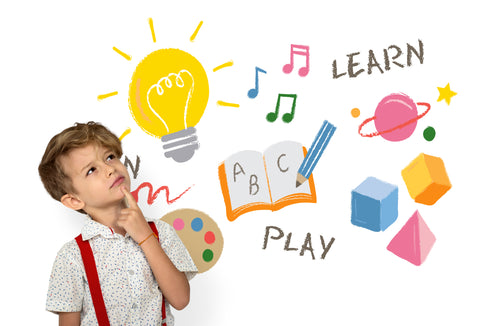
Benefits of Montessori Toys
Montessori materials and toys are carefully designed to support the child's learning and development. They prioritize simplicity, beauty, and functionality, and are designed with specific learning objectives in mind. Here are some key benefits of Montessori toys:
Hands-on Learning
Montessori toys are primarily hands-on and interactive, encouraging children to engage their senses and manipulate objects. This tactile experience promotes deeper understanding and retention of concepts, allowing children to actively construct their knowledge.
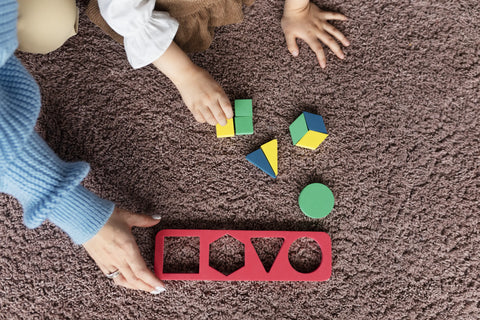
Focus on Life Skills
Montessori toys often focus on practical life skills such as dressing, cooking, cleaning, and self-care. Through these toys, children develop independence, coordination, and concentration, preparing them for real-life tasks and responsibilities.
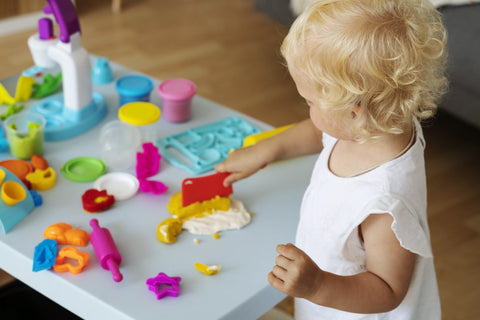
Promotes Concentration and Attention Span
Montessori toys are designed to capture and hold a child's attention. The materials are meant to be engaging and challenging, promoting focus, concentration, and the ability to sustain attention for extended periods.
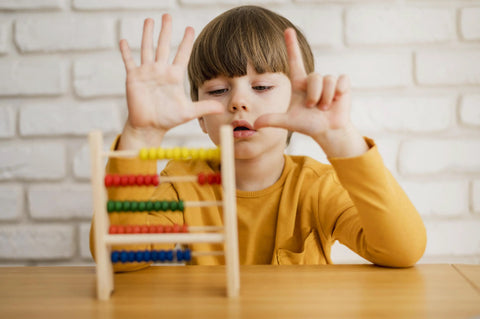
Encourages Problem-solving and Critical Thinking
Montessori materials are carefully designed to present progressively challenging tasks that require problem-solving and critical thinking skills. They promote logical reasoning, spatial awareness, categorization, and sequencing, fostering the development of cognitive abilities.
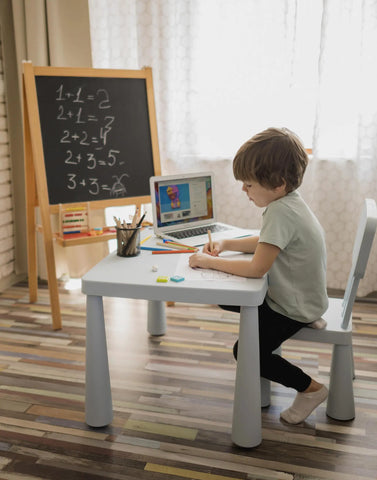
Promotes Language and Literacy Skills
Many Montessori toys are language-based, promoting vocabulary development, letter recognition, phonemic awareness, and early reading skills. Through the use of tactile letters and matching games, children develop a strong foundation in language and literacy.
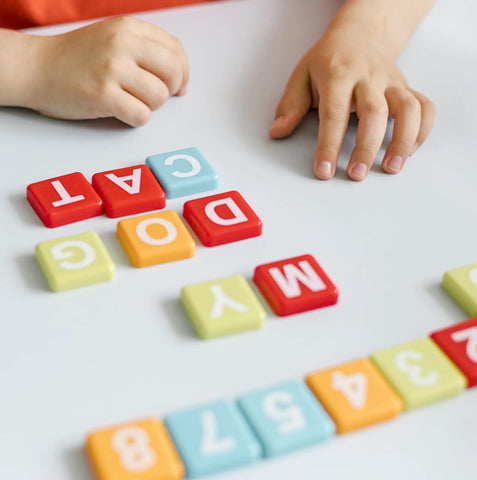
Fosters Creativity and Imagination
Montessori toys are open-ended, allowing children to use them in a variety of ways and encouraging imaginative play. They provide a platform for self-expression and creative exploration, nurturing the child's unique abilities and talents.
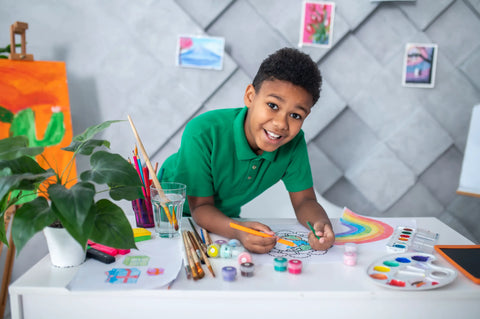
Promoting Creativity and Independence
The role of Montessori toys in promoting creativity and independence cannot be overstated. Unlike traditional toys that often have predefined uses or limited possibilities, Montessori toys allow children to explore and discover multiple ways of using them. This freedom to experiment fosters creativity and innovation, as children engage in open-ended play and problem-solving.
Additionally, Montessori toys are designed to be self-correcting, meaning that children can easily identify and rectify their own mistakes. This promotes a sense of independence and self-confidence, as children learn to assess their progress and make adjustments accordingly. By allowing children to learn from their own errors, Montessori toys empower them to take ownership of their learning journey.
Montessori toys also promote independence by encouraging children to engage in activities that are developmentally appropriate and achievable. The materials are carefully sequenced, with each activity building upon the skills mastered in previous activities. This allows children to progressively challenge themselves and develop a sense of accomplishment as they successfully complete tasks independently.
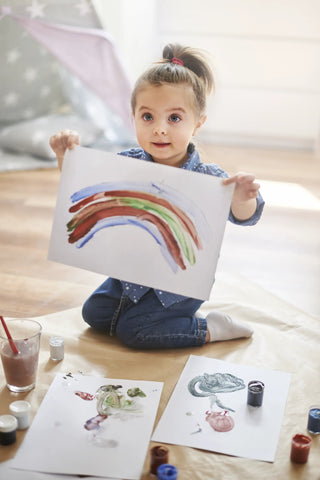
Conclusion
Montessori toys play a vital role in self-directed learning, fostering creativity, independence, and holistic development. With their focus on hands-on learning, practical life skills, problem-solving, and language development, these toys provide children with the tools they need to explore, discover, and construct knowledge. By promoting independent thinking, concentration, and self-correction, Montessori toys empower children to become motivated, confident, and lifelong learners. As we embrace alternative educational approaches, it is essential to recognize the value of Montessori toys in unlocking a child's true potential.




Leave a comment